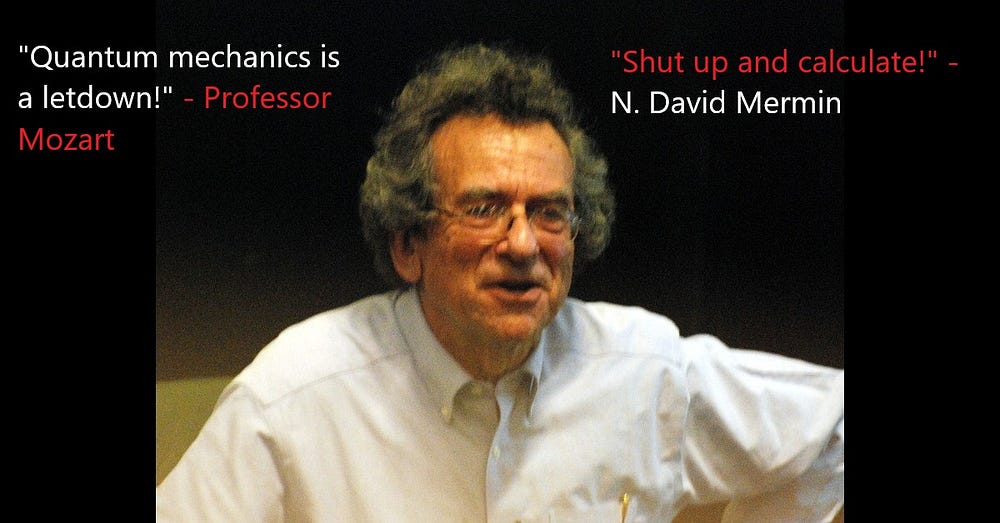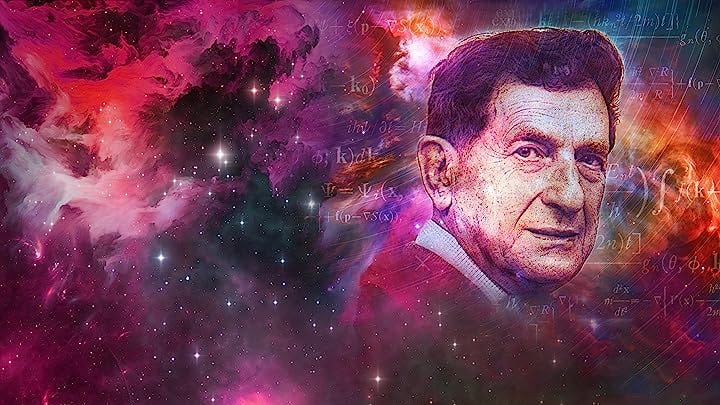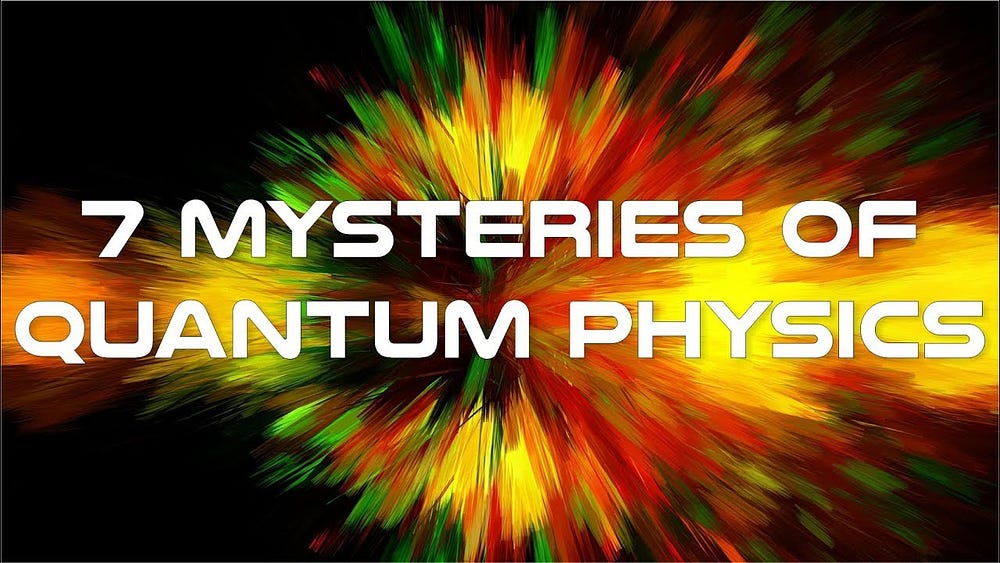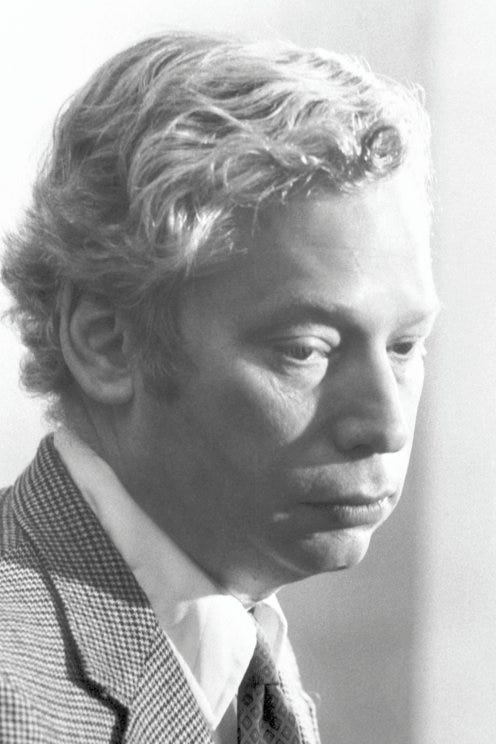Does a happy medium (if, perhaps, a rather artificial one) need to be found between those who believe that Thomas Kuhn was “evil” (see here), and those who see science as being merely in the game of “social construction”? Perhaps that happy medium is to read Kuhn as simply describing science in a more honest (warts and all) manner, rather than in an idealised (or normative) way (as, arguably, Karl Popper did).

[This essay relies a fair amount on the science journalist John Horgan’s account of his interview with Thomas Kuhn. Horgan’s words can be found in his Scientific American article ‘What Thomas Kuhn Really Thought about Scientific Truth’, as well as in his book The End of Science. The following essay doesn’t tackle Kuhn’s notion of a paradigm.]
Is Kuhn’s Philosophy of Science “Entirely Political”?

According to John Horgan, Thomas Kuhn
“insisted that he did not believe that science was entirely political, a reflection of the prevailing power structure”.
It’s precisely because Kuhn has often been seen as offering an “entirely political” analysis of science (i.e., not even a sociological, historical and/or philosophical analysis) that it was inevitable that those who emphasise science’s relation to politics or the politics of science (whether postmodern philosophers, political activists, Marxists, environmentalists, Greens, etc.) would jump on Kuhn’s work and use it as a weapon to advance political causes and goals which don’t really have that much to do with either science itself or to Kuhn’s actual philosophical work.
So some — even many — commentators have interpreted Kuhn’s work through an almost exclusively political lens. However, as hinted in the title, many readers may have at least some sympathy for Kuhn’s ideas and work. That said, what they should have less sympathy for (at least in my own view) are those people who deploy Kuhn’s words in order to advance political causes and goals which they’d probably have believed in even if they’d never read a single word of The Structure of Scientific Revolutions.

Take Kuhn’s own words on this phenomenon. He once said:
“I get a lot of letters saying, ‘I’ve just read your book and it’s transformed my life. I’m trying to start a revolution. Please help me,’ and accompanied by a book-length manuscript.”
Perhaps the well-known American palaeontologist and evolutionary biologist Stephen Jay Gould wrote one of those letters to Kuhn. (Gould was 21 when the first edition of The Structure of Scientific Revolutions was published.) After all, according to John Horgan, Gould
“acknowledged that his approach to evolutionary biology had been inspired in part by Kuhn’s Structure of Scientific Revolutions, which he read shortly after it was published in 1962”.
So did Kuhn’s book help Gould “start a revolution”?
Well, perhaps not a political revolution.
What about a scientific revolution (see here)?
According to Stephen Gould himself, Kuhn’s book did allow him to revolt against (or shift away from) the
“inductivist, ameliorative, progressive, add-a-fact-at-a-time-don’t-theorize-’til-you’re-old model of doing science”
toward his very own (more) theoretical and revolutionary way of “doing science” — or at least of doing evolutionary biology and palaeontology. Was this also a Kuhnian “paradigm shift” away from both traditional Darwinism and neo-Darwinism toward “punctuated equilibrium” and other Gouldian theories? (Gould even published a book with the Kuhnian title The Structure of Evolutionary Theory.)
Gould also acknowledged that Kuhn was the (in Horgan’s words) “‘intellectual father’ of the social constructivists and relativists”. (See ‘Social constructionism’.) Yet, and this will clash with both Kuhn’s enemies and his friends, Gould also stated that Kuhn believed that “there’s an objective world out there”. So although (in Horgan’s words) “this objective world is in some sense very hard to define”, Gould still claimed that Kuhn actually believed that “we have a better sense of what what it is than we did centuries ago”.
It must be said here that it’s not the objective world that’s “in some sense very hard to define”. Instead, it’s the actual words “objective world” themselves which are hard to define or understand.
What do the words “objective world” mean in this — or indeed in any — context?
Do they mean the world as it exists independently of human minds?
Okay.
So tell me something about this world as it exists independently of all human minds.
Alternatively, is the objective world somehow a product of all the statements and theories about the world which are agreed upon by all/most/many scientists?
Of course, there are many other options here. However, these questions can’t be fully tackled in this essay.
The Critics of Thomas Kuhn

There have been many strong criticisms — from philosophers, scientists and commentators generally — of Thomas Kuhn’s philosophy of science over the decades. This has been partly — or even largely —a reaction to the extensive political use of Thomas Kuhn’s work.
For example, the British philosopher Colin McGinn (1950-) said that Kuhn’s work was “sloppy” and “irresponsible”. What’s more, he also said it was full of “absurd subjectivism and relativism”.
Ironically enough, some of the criticisms of Kuhn’s work are very emotional and subjective in nature. They’re also often argumentatively weak. What’s more, other criticisms are the result of not actually having read Kuhn himself. (Many of Kuhn’s critics seem to have got Kuhn secondhand.)
Take these very silly and superficial criticisms of Kuhn from the American mathematician and theoretical physicist Edward Witten (1951-).
According to Horgan, when the subject of Thomas Kuhn was brought up in a conversation, Witten said:
“Did Kuhn go to a doctor when got sick? Did he have radial tires on his car?”
These questions are silly.
That’s primarily because Witten is referring to the applications of science. He’s not referring to what science is or even to what our attitudes toward science should be. What’s more, Witten’s words certainly aren’t about Kuhn’s philosophy of science — or, for that matter, about his own philosophy of science (if he has one).
Thus, Witten’s remarks are little more than a two-sentence non sequitur.
To spell things out.
A person can go to a doctor or have radial tires no matter what his or her attitude toward science is. A person can even be a fierce critic of science and still go to the doctor or have radial tires.
Yet, at least according to Horgan, Witten believed that because Kuhn went to the doctor and/or had radial tires, then this
“proved that Kuhn believed in science and not in his own relativistic philosophy”.
What do the words “believed in science” even mean?
In broad terms, two people can believe in science, yet also believe very different things about science. In fact, that’s clearly been the case in numerous instances.
So what is Edward Witten even saying?
[I’m willing to acknowledge here that quoting words from — informal? — interviews may be punching below the belt. That said, perhaps most scientists and philosophers are more honest and clear when they’re interviewed. In other words, perhaps obfuscation and plain deceit are more likely to occur in academic papers than in face-to-face interviews. Indeed, that’s the main reason why I’ve relied so much on John Horgan's many interviews with philosophers and scientists.]
Oddly enough, John Horgan himself kinda replicated Witten’s argument when he discussed the Austrian philosopher of science Paul Feyerabend (1924–1994). Horgan wrote:
“Recalling Feyerabend’s excoriation of the medical profession, I could not resist asking, did her husband seek medical treatment for his tumor? Of course, she replied. He had had ‘total confidence’ in his doctors’ diagnosis and had been willing to accept any treatment they recommended; the tumor had simply been detected too late for anything to be done.”
In any case, after a decade of criticisms of his work, it was of course the case that Kuhn came to know precisely what many of those criticisms were. Indeed, the first substantive attack on Kuhn’s 1962 book The Structure of Scientific Revolutions came almost immediately after it was published. (See Dudley Shapere’s 1964 review, ‘The Structure of Scientific Revolutions’.)
So, as a taster, here’s Kuhn himself (from a 1972 paper called ‘Objectivity, Value Judgement, and Theory Choice’) on the subject of the criticisms of his own philosophy of science:
“[W]hether or not this invocation of the distinction between contexts of discovery and of justification provides even a plausible and useful idealization. [] I suspect that my critics have been misled by science pedagogy or what I have elsewhere called textbook science.”
This passage is a hint at scientists conflating and/or confusing what science should be with what science actually is. In other words, “science pedagogy” (or “textbook science”) tells us what science should be: it doesn’t tell us what science actually is.
In addition, the distinction between the context of discovery and the context of justification wasn’t even seen as an idealisation by most of those scientists and philosophers who originally made use of it. Yet here’s Kuhn arguing that this distinction doesn’t even work as a “plausible and useful idealization”.
Now let’s move away from scientists themselves to two philosophers of science.
Karl Popper’s philosophy of science can be classified as being largely normative in nature (i.e., it tells us what science should be). Indeed, Popper even admits this in another of John Horgan’s interviews. (See ‘Karl Popper finally answers the question: Is falsifiability falsifiable?’.) Kuhn, on the other hand, described his own philosophy of science as being “descriptive”.
[Does all this explain why Popper has been classed as “the favourite philosopher of scientists”? Similarly, does it also explain why Kuhn has been severely castigated by many scientists — particularly physicists?]
Elsewhere in the same paper, Kuhn wrote:
“A number of philosophers have greeted remarks like these in a way that continues to surprise me. My views, it is said, make of theory choice ‘a matter of mob psychology.’ Kuhn believes, I am told, that ‘the decision of a scientific group to adopt a new paradigm cannot be based on good reasons of any kind, factual or otherwise.’”
[See ‘Kuhn’s account of science amounts to ‘mob psychology’’.]
Of course, Kuhn’s account of matters might not have been fair or even honest. Still, note his words “Kuhn believes, I am told”. These words square with my own experiences of some scientists and philosophers getting Kuhn secondhand.
It’s also worth noting that although Kuhn mentioned “philosophers”, scientists have been just as critical — if not even more so — of his work. Indeed, it seems obvious that scientists will be more likely to take Kuhn’s philosophy of science personally than philosophers.
Horgan on Kuhn: “Absolute Truths” vs “Equal Untruths”

The science writer John Horgan accuses Thomas Kuhn of using “rhetoric”. He also argued that “Structure is clearly a work of literature”. Horgan then indulged in some rhetoric and literature of his own. (Kuhn did say that scientists — or perhaps only many scientists — are “addicts”, and that they’re “brainwashed”.)
Take the following passage from Horgan:
“[] Kuhn’s insight forced him to take the untenable position that because all scientific theories fall short of absolute, mystical truth, they are all equally untrue; because we cannot discover The Answer, we cannot find any answers.”
I can usually find much to agree with in Horgan’s words. However, the passage above is simply over-the-top. It’s also (to use a word Horgan often uses) “ironic” journalism. (See Horgan’s ‘What Is Ironic Science?’)
To (almost) state the obvious.
Kuhn didn’t demand “absolute, mystical truth” from either science or scientists. He can’t even be interpreted as demanding that. What’s more, it’s not even the case that most scientists have demanded such a thing.
What’s more, why on earth does it follow that because absolute, mystical truth (whatever it is!) can’t be attained (i.e., “all scientific theories fall short” of this), that scientific theories “are all equally untrue”? Thus, Horgan seems to be saying (or he seems to be taking this to be Kuhn’s position) that we have absolute truths in one corner of the ring, and equal untruths in the other corner.
I can’t see how Kuhn held such a view.
Indeed, it can’t be argued that scientists on the whole hold (or have held) this view.
In detail.
A stress on a lack of absolute truth in science is something that most scientists themselves have stressed (especially in the 20th century). Readers can safely assume, then, that Horgan already knew that. So Horgan must be reading Kuhn as believing that because of this general acceptance of a lack of absolute truth in science, then all scientific theories must be (to use Horgan's words) “equally untrue”.
Of course, it can be supposed that scientific theories can indeed be deemed to be equal in that no scientific theory offers us the absolute truth.
Sure.
However, that claim has about as much weight as saying that all theories or statements (of any description) are equal because they’re all… well, theories or statements. Thus, “The moon is made of cheese” is untrue, and perhaps we can also accept that “Gravity exists throughout the universe” is not an absolute truth. Thus, because the latter statement isn’t an absolute truth, then it must also be an untruth. Consequently, it must be in the same epistemological and/or scientific ballpark as the statement, “The moon is made of cheese.”
Surely Kuhn can’t have believed that these two statements are equal — or even equally untrue. They may be equal in the simple sense that both are untruths (i.e., both aren’t absolute truths). However, they aren’t equal in a host of other respects. So Kuhn wouldn’t have treated these two claims as equal in all these other respects.
So perhaps this is a misreading of Horgan’s own reading of Kuhn’s position. Alternatively, perhaps Horgan just got too hooked on his own rhetoric and poeticisms.
As another example of this, take Horgan’s use of Platonic capitals to get (more or less) the same point across.
Of Kuhn’s position, Horgan tells us that
“because we cannot discover The Answer, we cannot find any answers”.
Horgan also wrote that Kuhn “tried to protect us from The Answer with doubt and reason”.
Again: nearly all scientists accept that we can’t find The Answer — and a good thing too! (If scientists did offer The Answers, then science would grind to a halt.) Of course, Horgan must have realised this about science and scientists. So his point must have been that Kuhn was subconsciously (or tacitly) thinking in this Platonic or “mystical” way without actually realising it. In other words, because science doesn’t offer us The Answer to anything, then Kuhn must have believed that, to quote Paul Feyerabend, “anything goes”.
[To be fair to Feyerabend, all he meant by the words “anything goes” is that there isn’t a single (Platonic) Method in science. In fact, any method or tool goes.]
It can be strongly doubted that Kuhn believed anything of the sort — even subconsciously. That said, Horgan is kinda telling his readers that this is actually a consequence of Kuhn’s position. He’s not telling his readers that Kuhn was ever explicit about this.
Alternatively, Kuhn himself might well have simply argued that it doesn’t follow that because scientists don’t (or even can’t) offer us absolute truths, then that must also mean that scientists “cannot find any answers” at all. In other words, it’s not as if the notion of absolute truth is built into the notion of providing scientific answers. It seems, then, that Horgan’s rhetoric — or his own “ironic” writing — is getting in the way of taking this particular reading of Kuhn’s philosophy of science seriously.
My flickr account and Twitter account.










